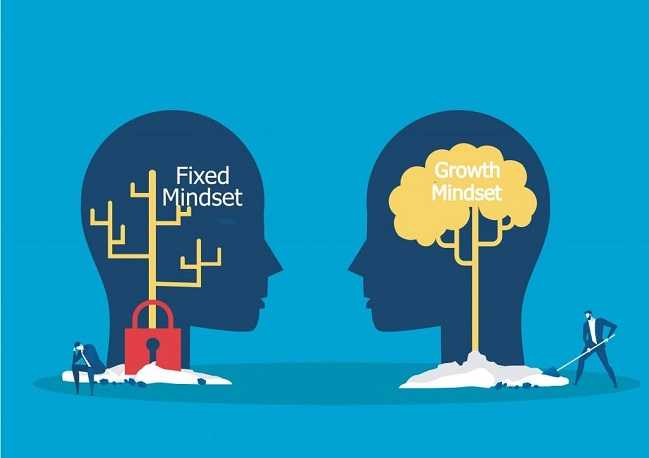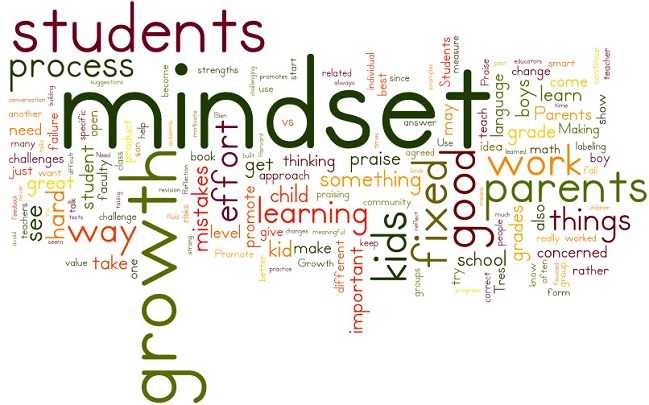How To Develop Growth Mindset In Students

When you find a person with a growth mindset, the person would usually believe that with effort, he or she can continue to learn and become more intelligent.
On the other hand, meeting another person with a fixed mindset, you will find out that the person might believe that they are born with a certain amount of talent and intelligence that cannot be improved no matter how much work they put forth.

What is the definition of a growth mindset?
In brief, a growth mindset is a belief that abilities and understanding can be developed.
This is why those with a growth mindset usually have a strong belief that by putting in time and effort, they can become smarter, more intelligent, and more talented.
What is a Fixed Mindset?
Now let us briefly define a fixed mindset. Someone with a fixed mindset usually assumes that abilities and understanding are relatively fixed.
When you find those with a fixed mindset, you will discover that they may believe that intelligence cannot be improved or that you either have it or you don't when it comes to skills and potential.
What is the main difference between growth and a fixed mindset?
When comparing the two mindsets, it is important to note that individuals' responses to failure are profoundly influenced by their fixed and growth mindsets.
Another distinction between these two types of mind is that those people with a fixed mindset see failure as a lack of ability, while those people with a growth mindset see failure as an opportunity to broaden their abilities and work harder and smarter.
When it comes to goals you will always find a stack difference between the two minds.
When it comes to other people’s perceptions, those people who have a fixed mindset want to appear intelligent to others because they believe that failing to do so reveals a flaw.
On the other hand, those with a growth mindset are less concerned about how others perceive their intellectual ability since they strongly believe that knowledge and ability can be improved by hard work.

So, in summary, the main difference between the two mindsets is their belief in the permanence of intelligence and ability. The fixed mindset believes it is very permanent, with little to no room for change in either direction, but the growth mindset believes it is more changeable, with opportunities for improvement.
How to Develop a Growth Mindset
#1. Accept and embrace imperfection
You should embrace and accept imperfection in yourself as well as in other people, this is because it is the spice that makes us unique.
#2. Setting High Standards
Many research has asked participants to cycle as hard as they could for 4000m in a fascinating study of knowing your limits. The participants were later given the same racing rules, but with an option of racing against an avatar of their previous ride. The runners didn't realize that the avatar was traveling at a faster rate than their previous ride. As a result, The participants rode alongside their avatar for much longer distances than their previous best efforts.
This shows that people are poor at predicting their best efforts and, when pushed, may outperform themselves.
#3. Persistence
Many people consider perseverance and the ability to overcome setbacks to be important life skills. Many Olympic champions have honed this skill, and they credit it with their success.
Turn criticism around until you find its gift - The goal of criticism is to improve things. Someone else may see what you're doing in a slightly different light than you and have some useful suggestions for you. You can develop your growth mindset more easily if you are open to hearing suggestions.
Do you have a growth mindset?
Do you have a genuine belief that you were born and raised with a predetermined set of skills and abilities? Or do you strongly believe that your ideas and beliefs are constantly changing, giving you more opportunity to learn new skills with effort and that your wisdom and intelligence grow with each new experience?
If you "yes" as your answer to the first question, then it shows that you have what's known as a "fixed mindset."
If you answered yes to the second question, you most likely have a "growth mindset."
Advantages of a Growth Mindset
These are some good advantages of a growth mindset, especially among students:
- They will seek out better feedback and stick with it for a longer period of time.
- They handle transitions better and develop better self-regulation.
- Having a growth mindset will greatly decrease stress and aggression in students while increasing wellbeing and emotional functioning.
- It boosts self-esteem, increases learning orientation, and decreases helplessness.
3 Tips for Creating a Growth Mindset Teaching Culture
#1. Ensure you Place High Value on the process over the result.
Since we live in a results-driven environment, it is very difficult to value the process over the result. But teachers and administrators who value the growth mindset and its long-term benefits are more likely to stick with it.
#2. See challenges as opportunities
You must understand that students aren't the only ones dealing with difficulties; many teachers, as well as administrators, can benefit just as much from a positive attitude toward the process.
#3. Carry out experiments with various teaching and learning strategies
A key component of the growth mindset approach is assisting students in developing the skills they need to improve. Teachers and administrators who adopt a growth mindset should not be afraid to try new things.
Author Bio
This user has not submitted a user bio yet
Article Comments
No Comments!
At present there are zero comments on this article.
Why not be the first to make a comment?
Similar Articles
Sponsor
Search Articles
Experts Column
Latest Articles
Featured Articles
Most Popular Articles












